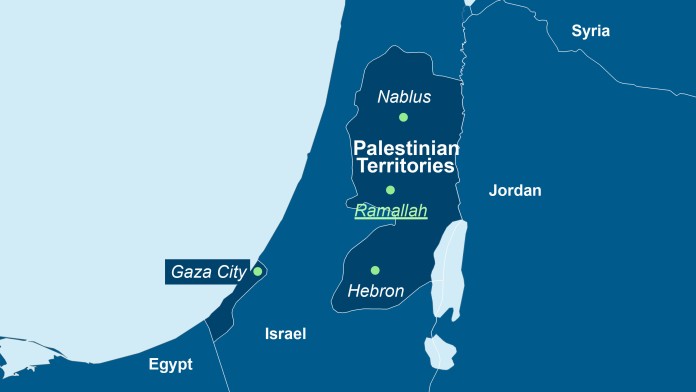
On the current conflict situation, the German Federal Ministry for Economic Cooperation and Development published a statement on its website

The unresolved Middle East conflict shapes life in the Palestinian Territories. There are 5.2 million people of Palestinian descent living there, 2.1 million of them in the Gaza Strip and 3.1 million in the West Bank and East Jerusalem. Recurrent violent clashes, political gridlock and ongoing restrictions on the movement of people and goods weigh heavily on the people and the economy. The consequences are high unemployment and a continuing potential for conflict. The situation in the Gaza Strip is particularly explosive. There, people lack water, electricity and jobs.
In the course of the Arab-Israeli conflict, hundreds of thousands of Palestinians fled their homeland in 1948 and in the following years. In addition to today's Palestinian Territories, many refugees found refuge in the neighbouring countries of Jordan, Lebanon and Syria. In the absence of a political solution to the conflict, they still live there today - often with only limited rights and under precarious living conditions. Financial Cooperation supports Palestinian refugees through the refugee relief agency UNRWA. The relief agency was founded in 1949 and is thus one of the oldest programmes of the United Nations. It is responsible for ensuring the basic needs of currently about 5.3 million Palestinian refugees.
Since the early 1980s, KfW Development Bank has been active in the Palestinian Territories on behalf of the German Federal Ministry for Economic Cooperation and Development (BMZ) in the following priority areas:
In the area of sustainable economic development, training and employment, KfW supports the Palestinian Ministry of Education in improving the education system. This enables new schools to be built and vocational training programmes to be developed. Employment programmes provide access to paid work for people who are able to work - this contributes to an improvement in the income situation and also supports a variety of social institutions, e.g. for people with disabilities.
The German government - among other donors - supports the area of "building public institutions and promoting civil society" by financing the Palestinian Municipal Development Fund. With the funds from the MDLF, municipalities can build roads and playgrounds, for example. The transparency and quality of the respective local administration influences the amount of funds provided by the MDLF.
KfW's funding also includes the expansion of the drinking water supply and the construction of modern sewage treatment plants, both in the West Bank and in Gaza. Some of the treated wastewater is also used for agriculture. In the Gaza Strip, German Development Cooperation is also involved in the desalination of seawater.
KfW Office Ramallah-Al Bireh
Director KfW Office: David Kunze
Abdullah Joudah Street Bldg. 35
Ramallah-Al Bireh
Palestinian Territories
+972 22 40 07 30
Fax: +972 22 40 07 31
